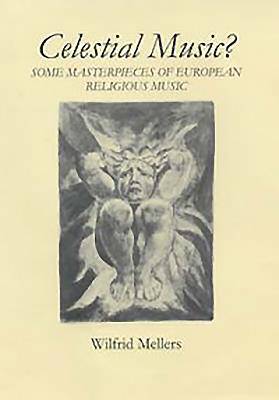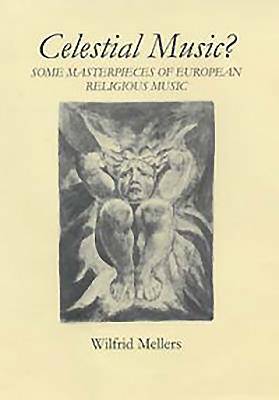
Bedankt voor het vertrouwen het afgelopen jaar! Om jou te bedanken bieden we GRATIS verzending (in België) aan op alles gedurende de hele maand januari.
- Afhalen na 1 uur in een winkel met voorraad
- In januari gratis thuislevering in België
- Ruim aanbod met 7 miljoen producten
Bedankt voor het vertrouwen het afgelopen jaar! Om jou te bedanken bieden we GRATIS verzending (in België) aan op alles gedurende de hele maand januari.
- Afhalen na 1 uur in een winkel met voorraad
- In januari gratis thuislevering in België
- Ruim aanbod met 7 miljoen producten
Zoeken
€ 121,45
+ 242 punten
Omschrijving
The late Wilfrid Mellers, who occupies a special place among music critics, described himself as a non-believer; but his preference for music that "displays a sense of the numinous" (in his words) will strike a chord with many who listen to religious music nowadays, and who share his view that music that confronts first and last things is likely to offer more than music that evades them. The essays form five groups, which together offer a survey of religious music from around the first millennium to the beginning of the second, in the context of the difficult issues of what religious music is, and, for good measure, what is religion? The parts are: The Ages of Christian Faith; The Re-birth of a Re-birth: From Renaissance to High Baroque; From Enlightenment to Doubt; From "the Death of God" to "the Unanswered Question"; and The Ancient Law and the Modern Mind. Musical discussion, with copious examples, is conducted throughout the book in a context that is also religious - and indeed philosophical, social, and political, with the open-endedness that such an approach demands in the presentation of ideas about music's most fundamental nature and purposes. COMPOSERS: Hildegard of Bingen; Perotin; Machaut; Dunstable, Dufay; William Corniyshes father and son; Tallis; Byrd; Monteverdi; Schutz; J.S. Bach; Couperin; Handel; Haydn; Mozart; Beethoven; Schubert; Bruckner; Berlioz, Faure; Verdi, Brahms; Elgar, Delius; Holst, Vaughan Williams, Howells; Britten; Janacek; Messiaen, Poulenc; Rachmaninov; Stravinsky; Part, Tavener, Gorecki, Macmillan, Finnissy; Copland.
Specificaties
Betrokkenen
- Auteur(s):
- Uitgeverij:
Inhoud
- Aantal bladzijden:
- 336
- Taal:
- Engels
Eigenschappen
- Productcode (EAN):
- 9780851158440
- Verschijningsdatum:
- 6/12/2001
- Uitvoering:
- Hardcover
- Formaat:
- Genaaid
- Afmetingen:
- 163 mm x 244 mm
- Gewicht:
- 666 g

Alleen bij Standaard Boekhandel
+ 242 punten op je klantenkaart van Standaard Boekhandel
Beoordelingen
We publiceren alleen reviews die voldoen aan de voorwaarden voor reviews. Bekijk onze voorwaarden voor reviews.









